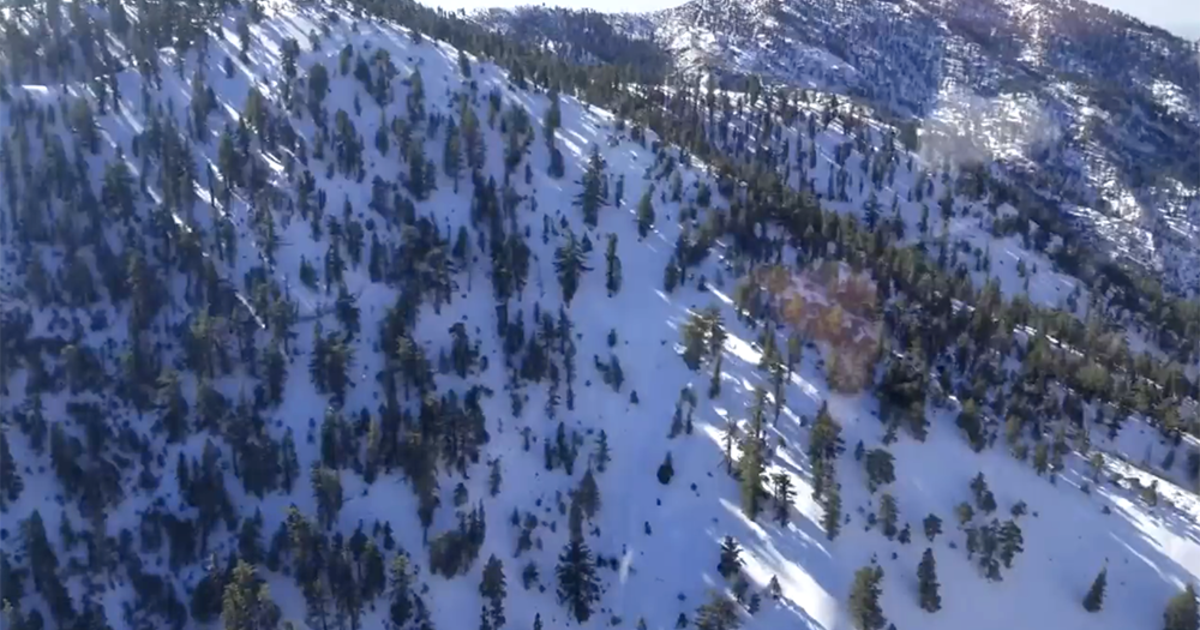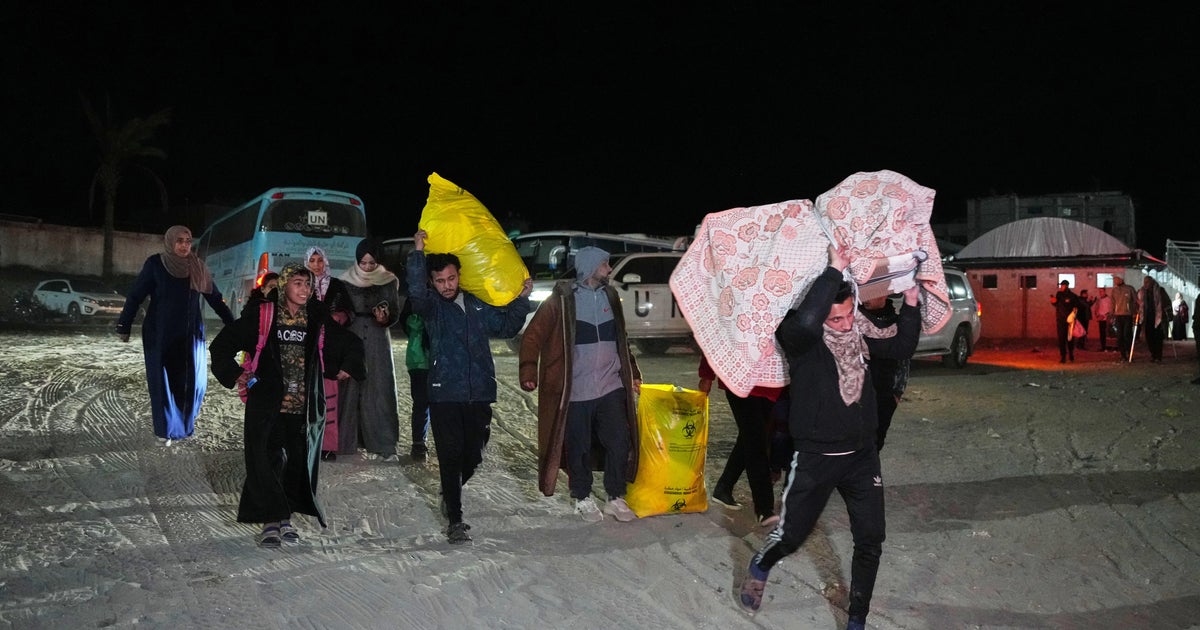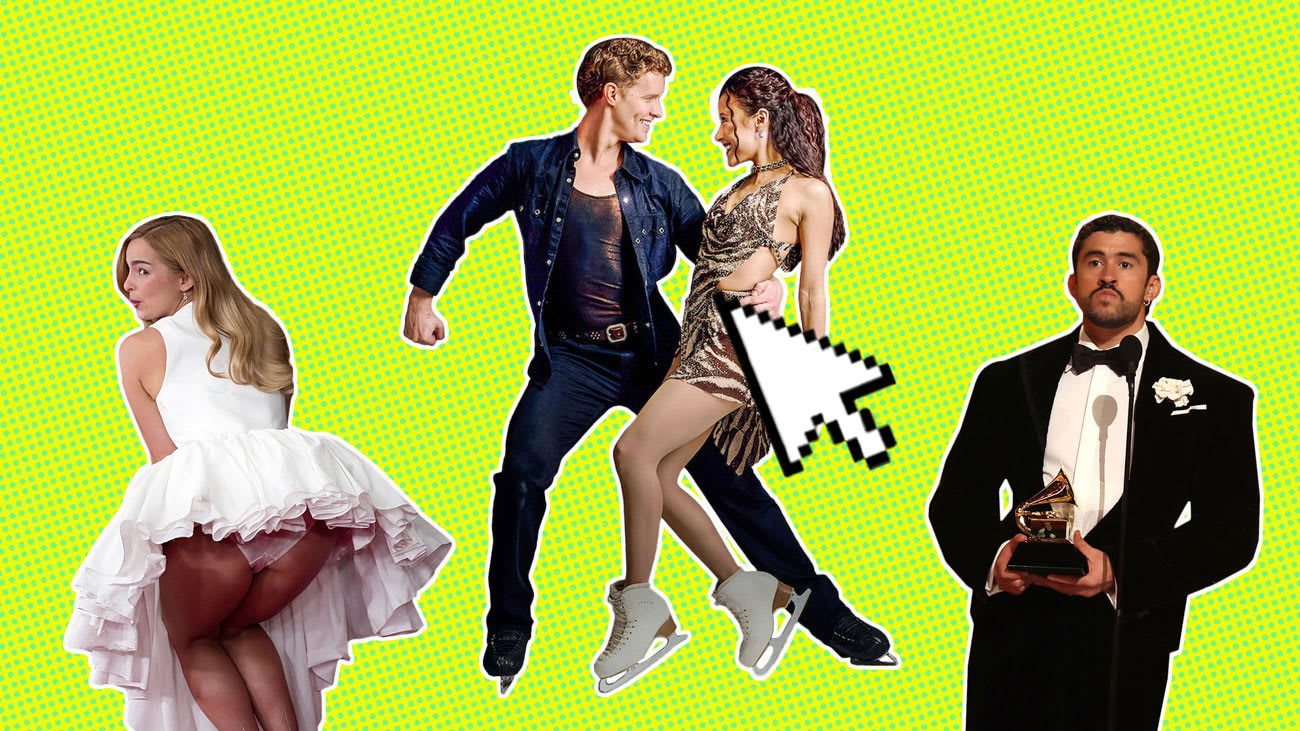Omicron variant puts a "winter chill" on U.S. economic recovery
A new coronavirus variant is casting a pall over the holiday season, as a steep uptick of cases is driving restaurant closures, large-event cancellations and causing Americans to pull back on travel plans.
The hyper-infectious strain of coronavirus known as the Omicron variant has already been detected in 38 states, and comes on top of a wave of Delta variant that pushed up case counts and strained health systems in many parts of the country.
The newest wave closed college campuses and prompted the cancellation of high-profile events including Broadway shows and the UCLA men's basketball game scheduled for Saturday. Meanwhile, fears of illness are pushing travelers to hold off on post-holiday plans and derailing many well-laid return-to-office plans by companies large and small. And stock markets ended the week down, with the Dow dropping more than 500 points Friday and some of its slump attributed to Wall Street worries about Omicron.
Coming after a strong summer and fall, the pullback is certain to dampen the economic recovery, some economists say. The question is — by how much?
"It's inevitable that this new variant will lead to a slowdown in consumer spending activity over the next few weeks and in 2022. How severe that will be is a big question mark at this point," Gregory Daco, chief U.S. economist at Oxford Economics, told CBS MoneyWatch.
"I think there are increasing concerns about the new strain, and I think that will be reflected in somewhat of a winter chill in economic activity," Daco said. "The more this variant spreads, the more rapidly it spreads, the more people will hesitate to go out to movies, major events."
He noted that the severity of the economic hit will likely depend on the degree of illness the new strain causes — something that is not yet well understood. If it turns out Omicron cases are relatively milder than other variants and masses of infected individuals don't overwhelm health care systems, economic activity is likely to pick up again in the spring of next year, he predicted.
But there's a worrying example from across the pond: the United Kingdom, where Omicron is already widespread.
"The current experience of the U.K. suggests that the U.S. services sector is about to take a severe hammering," Ian Shepherdson, chief economist at Pantheon Macroeconomics, wrote Thursday in a note to investors. "The ensuing re-emergence of Covid fear will drive down spending in hotels, restaurants, bars, and other leisure venues, and we expect air travel to be hit too."
All in all, Shepherdson expects the virus wave to reduce first-quarter U.S. GDP growth to 3% from 5%, he wrote.
Brendan Sweeney, CEO and founder of the restaurant technology provider Popmenu, saw the effect on restaurants firsthand when his company expanded to the U.K. several months ago. "It was impossible to get a reservation anywhere in London. I was talking to restaurant owners who said, 'Our Christmas is completely booked up,'" Sweeney told CBS MoneyWatch. "It was September and their bookings were done. Now they're closed."
Restaurant shutdowns
In New York, dozens of restaurants reportedly closed Thursday and Friday, some after staff or patrons reported positive COVID-19 tests, others out of an abundance of caution to allow their staff to get tested before reopening to the public.
While Laurence Edelman's Left Bank restaurant in Manhattan's West Village remains open, new restrictions — some of them reminiscent of 2020 — have been reinstated. For one, staffers must be masked at all times, and patrons must cover their faces unless they are seated eating or drinking.
"As of yesterday, we immediately went back to full masking for all employees and all customers if you're not eating. It's kind of been – it all shot out in like a 12-hour span. It went from zero to hundred," Edelman told CBS MoneyWatch.
Left Bank is also ramping up its outdoor dining and to-go and delivery operations after a number of patrons with reservations indoors asked to be seated al fresco in recent December days.
"As the dining-in reservations can dwindle, we expect that out take-out and delivery will grow. I'm not thrilled about this but it's something good that we've got and I'm happy we have it. We are equipped to deal with it. I expected this to come back around and expected to see seasonality at least in the short term."
To his knowledge, none of his staff has tested positive. But he's putting the safety measures in place preemptively, given trends in case counts rising across other city establishments.
The list of popular establishments that have shuttered until further notice includes La Compagnie des Vins Surnaturels in Manhattan's Soho neighborhood and Oxalis, in Brooklyn's Crown Heights neighborhood.
"Along with many of our friends in the industry, Oxalis will be closing tonight due to a potential Covid exposure within our team. We will reopen once our full team is tested and when we're able to confirm that our team is healthy and well. As new Covid cases continue to rise, please be safe and let's continue to work to keep each other safe. We will keep you all updated," Oxalis said in an Instagram post.
But restaurants testing their entire staffs will have to be patient: Rapid, over-the-counter tests are sold out at many pharmacies, even after the Biden Administration said tests would be more widely available by December with the White House pledging to help manufacturers ramp up production.
Lines at clinic that administer highly accurate PCR tests are long and turnaround times are slow, sometimes taking five days or more to deliver a positive or negative result.
The hit to restaurants and other hospitality venues comes just as many were preparing for a roaring 2021 holiday season.
Holiday blues
"This is the toughest time to deal with another wave of mandates," said Popmenu's Sweeney. "There's so many holiday parties booked, so many gatherings. It is a time that people go out."
Data from OpenTable shows that restaurant traffic began sagging in early December, when global health authorities first raised concerns about the Omicron variant. In mid-November, diner traffic was nearly at the level it had been in 2019, before the pandemic; by mid-December, it was down 16% nationwide.
Other sectors that rely on in-person interactions are also suffering. In retail, the number of hours worked, as well as the number of employees, is down about 12% from pre-pandemic levels, while the number of establishments open are down by a quarter. That's according to data from Homebase, which provides software to small and mid-size businesses.
It's even worse for the leisure and entertainment sector, which includes recreational activities as well as major events. Over the summer the sector had a surge in activity as Americans felt safe enough to venture outdoors and even catch a show — the level of work in the sector was up 30% from prepandemic levels, even with fewer establishments open. But those numbers started dropping in September and, by mid-December, were down by nearly 20%.
"The whole leisure and hospitality sector will be the first one hit," Daco predicted. "Brick and mortar stores on the retail front, also. Any kind of in-person sector will be affected and then there will be fallout effects."
He added, "We're already seeing it in a number of actions on the line, we're seeing people being more cautious when it comes to travel, we're hearing about businesses that have implemented a return-to-work policy reversing course, we're hearing about schools closing — those are all pretty strong signals affecting economic activity."
While Americans are sticking to their holiday travel plans, air lines are bracing for a rough start to the new year, which is typically a soft period for leisure travel, according to analysts.
"There is not too much leisure travel because people are done traveling for Christmas and they spent a lot of money and, frankly, unless you want to go skiing, the weather is not always conducive to a getaway," said Henry Harteveldt, travel analyst at Atmosphere Research Group.
Under normal circumstances, some business travel would take place in January and February, but this year, air carriers shouldn't count on it. Airlines already are slashing prices and offering aggressive discounts.
"They are expressing a level of reasonable caution about the impact that Covid may have and many of them have been frank in their comments in saying we just don't know what's going to happen because we don't know how Omicron is going to play out," Harteveldt said. "For people who do feel comfortable, there are some good airfare deals out there."
Unlike last year, a majority Americans have been vaccinated against the coronavirus, meaning most of them will be protected from severe illness or hospitalization. But, in a grimmer contrast with 2020, people will be facing an uncertain new mutation without the backup of financial support from the government.
"Last year we had a COVID relief package at the end of the year, a couple months later we had the American Rescue Plan. Is that going to happen again?" Daco asked. "Are people going to be spending much more, or will they be more cautious in spending in an environment in which there is greater uncertainty?"



